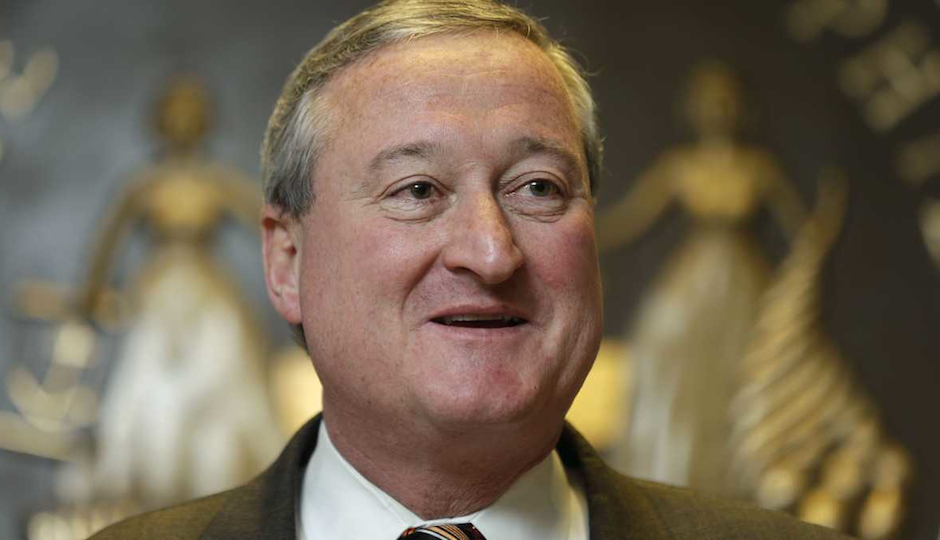The Brief: Jim Kenney is the Mayoral Race’s New Frontrunner
1. Jim Kenney Takes the Lead in the Mayor’s Race, Two Polls Show
The Gist: For the first time this year, former City Councilman Jim Kenney has a statistically significant lead over state Sen. Anthony Williams, according to two polls done on behalf of Kenney. Former District Attorney Lynne Abraham is lagging behind both Kenney and Williams. The Philadelphia Inquirer had the story first:
Kenney, with 33 percent of those polled, led Williams by nine points in a survey financed by Forward Philadelphia, a PAC formed to promote Kenney’s candidacy and funded, in part, by the American Federation of Teachers. Abraham had 18 percent in that poll, which was conducted Monday through Wednesday. Nineteen percent of respondents said they were undecided.
Kenney’s campaign conducted its own poll from April 18 through Tuesday. That survey had Kenney at 30 percent, Williams at 26 percent, and Abraham at 17 percent, with 17 percent undecided.
Why It Matters: The two surveys were conducted after another poll by AFSCME found a virtual three-way tie between Kenney, Williams and Abraham. This means Kenney has gained ground in a short period of time, despite the fact that Williams’ super PAC supporters are pouring a boatload of cash into TV ads for the race. The big question: Will Kenney’s lead stick? His super PAC allies are on track to spend $2 million over the course of the campaign, while Williams’ backers are expected to spend twice that.
2. Are the Mayoral Candidates’ Pension Fixes “Band-Aid Solutions?”
The Gist: Philadelphia’s pension system has less than half the money it needs to pay for retirements benefits that the city has already promised workers. What ideas have the mayoral candidates offered for fixing this? The Inky reports that they have proposed everything from changing the system’s management to bargaining with labor unions to selling or leasing city assets.
Why It Matters: The city’s underfunded pension system is a big problem, and many of these aren’t exactly big ideas. Comcast executive V.P. David L. Cohen, who served as chief-of-staff under then-Mayor Ed Rendell in the 1990s, called them “Band-Aid solutions.” This reminds us of that time when, earlier this year, Mayor Michael Nutter called the candidates’ school funding plans “bogus.” It’s clear that, with less than a month to go till Election Day, some of Philadelphia’s power players still aren’t convinced that the mayoral candidates are equipped to handle the city’s major troubles.
3. Former Mayor Goode: This Mayor’s Race Is Not Like My Successful 1983 Race
The Gist: In an op-ed in the Philadelphia Tribune, former Mayor Wilson Goode Sr. says that many people have tried to compare this year’s mayoral race to his successful campaign in 1983. But, he says, there are few similarities. Goode says his election came about as a result of decades of activism and work by African-Americans whose goal was to “wrestle political control of black elective officials from the white political establishment called ‘The Democratic Party.'”
Why It Matters: We’ll let Goode explain. He says:
This history is important because:
1. It speaks to the connectivity between my election and the personalities and events that preceded it and their relatedness to my success.
2. It suggests that some of the current elected officials have lost their sense of history and the heavy lifting by many to enable them to achieve success today.
3. It suggests that some believe it is about them and their political survival and not the communities they represent.
Goode also points out that he won the Democratic primary election in 1983 with 425,000 votes. That’s a lot. He says, “We need that kind of outpouring action again, rather than an expectation that 100,000 votes could win the election.” At this point in the race, though, that seems highly unlikely.
